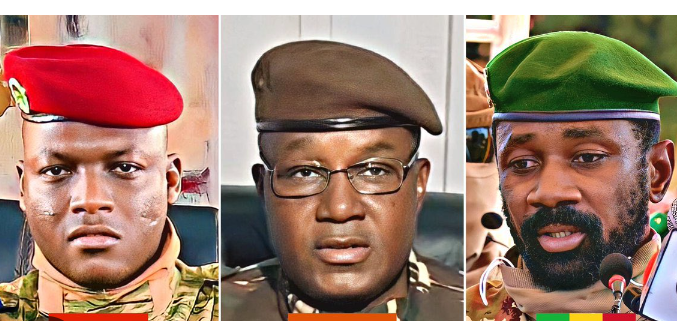Niger, Mali, Burkina Faso exiting ECOWAS? All you should know

Photo credit: Google
The Economic Community of West African States (ECOWAS) has resolved to officially withdraw Niger, Mali, and Burkina Faso from being members of its regional bloc from January 29th, 2024.
This agreement took place at the 66th Ordinary Summit of the ECOWAS Heads of State and Government.
READ ALSO: Nigeria’s Samuel Nwajagu wins Mister International: Here’s what to know
Should power return to the north in 2027?
Son’s Transfer Saga to Man United: A Right, Good Deal or Risk?
TVC News reports that “the President of the ECOWAS commission, Omar Touray, announced the decision of the authority to accept the withdrawal of Niger, Mali, and Burkina Faso and launched withdrawal modalities from January 29th, 2025.”
The regional bloc has given a six-month window for the sovereign states to reconsider their decision. The window period will officially end on the 29th of June 2025.
Key reasons behind the withdrawal
The withdrawal of these three countries from ECOWAS is rooted in a confluence of political, economic, and security issues.
Over the past three years, military juntas have seized power in Mali (2020), Burkina Faso (2022), and Niger (2023), leading to strained relations between these nations and ECOWAS, which has traditionally championed democratic governance in the region.
One of the critical factors driving this rift is the escalating insecurity in the Sahel region. Niger, Mali, and Burkina Faso are at the epicentre of violent insurgencies linked to groups such as Al-Qaeda and the Islamic State.
Reacting to these issues, ECOWAS imposed sanctions on these nations by economically restricting and suspending them from the organization. These measures were intended to pressure the juntas to return to civilian rule.
However, the nations in question perceived this as a punitive measure against their sovereignty and self-determination as nation-states.
It is also reported by Al Jazeera that the withdrawing nations have formed a regional security bloc, the Alliance of Sahel States (L’Alliance des États du Sahel), pledging mutual defence and cooperation.
What this means
The Conversation reports that “The coastal states in ECOWAS fear contagion from both jihadism and political disorder in the Sahel. If the three Sahelian countries leave ECOWAS, that risk increases. So does the risk of potential hostility to Malian and Burkinabe migrants in Ghana, Côte d’Ivoire, and Senegal. Stopping free movement between these three countries and the rest of West Africa would have serious economic consequences for all concerned.”
Also, their exit may disrupt trade routes and create economic uncertainty in regions already grappling with inflation, poverty, and the lingering effects of the COVID-19 pandemic as these nations play vital roles in cross-border trade, agriculture, and resource sharing. Niger is a major exporter of uranium, Mali is renowned for gold production, and Burkina Faso is a significant agricultural hub.
Furthermore, it also raises questions about ECOWAS’ future effectiveness and efficiency. A credible question hangs on how the organisation can enforce its principles of democracy and integration when key members openly reject its authority.
Also, will ECOWAS recalibrate its approach to mend divisions and preserve its mission of unity?
Finally, the withdrawal of Niger, Mali, and Burkina Faso from ECOWAS is more than a regional dispute; it is a symbol of the growing tension between national sovereignty and regional integration in Africa.

